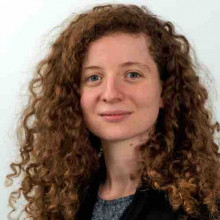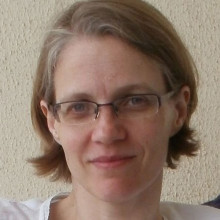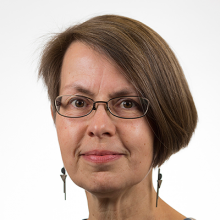Articles & Publications
Data Stewardship Training - Manchester
In November 2020 a Data Stewardship training event was held at The University of Manchester. This was part of the first stage of the University’s new Research Data Management Strategy.
Decoding the FAIR principles: Are they relevant to software?
Do we need FAIR software? Inria's Morane Gruenpeter, co-author of the just published FAIRsFAIR Assessment report on 'FAIRness of software' considers the options.
FAIRsFAIR at FAIR for Facilities Workshop from ExPaNDS - A blogpost by Elizabeth Newbold
At the beginning of October, FAIRsFAIR participated in the workshop FAIR for Facilities organised the ExPaNDS project. FAIR for Facilities concentrated on what FAIR means for those working in the photon and neutron community.
The Journey to FAIR: Advice from the FAIRsFAIR Experts
Formally appointed on 3 June 2019, the experts meet periodically to provide guidance on FAIRsFAIR activities implementation. The last meeting was organised on 23 September where the HLAC provided target recommendations on FAIRsFAIR lines of action and reviewed FAIRsFAIR recent reports.
Emerging skillsets and incentive structure for FAIR research. Blog post by Josefine Nordling and Marjan Grootveld
The EOSC Symposium week (19-22 October) included lots of interesting presentations on various EOSC related activities and I’m fairly sure there was something in it for all of us. As a member of two EOSC projects on FAIR, FAIRsFAIR and EOSC-Nordic, I attended the sessions that were of particular interest to those.
The role of Publishers in implementing FAIR policies and practice in RDM: Interview with Joris van Rossum and Eefke Smit, STM Association
Highlights from a podcast interview with Joris van Rossum, Director for Research Data, International STM Association, and Eefke Smit, Director of Standards and Technology, International STM Association, and FAIRsFAIR Champion.
FAIRsFAIR Design Workshop on FAIR Competencies for Higher Education. Blog post by Lennart Stoy
On 8 and 9 October 2020, FAIRsFAIR organised a design workshop entitled FAIR Competencies for Higher Education as part of the ongoing project effort to advance the integration of data stewardship within higher education curricula. Hosted by the University of Amsterdam and the European University Association and linked to the project activities on FAIR Data Science and Professionalisation, the workshop brought together 24 participants from all over Europe and different sectors to present and discuss the efforts of FAIRsFAIR and other stakeholders in this area.
How is FAIRsFAIR supporting the repositories selected for CoreTrustSeal Certification? Blog post by Frans Huigen and Ilona von Stein
The FAIR Certification work group selected ten selected repositories to receive funding and support to obtain their CoreTrustSeal Certification. In exchange, they help us with connecting the CoreTrustSeal Requirements to the FAIR principles. Ultimately, the goal is to have FAIR-enabling Trusted Digital Repositories (TDRs). Let’s have a look at the process: how does FAIRsFAIR support these ten repositories in their journey towards trust and FAIR?
FAIR metrics and certification, rewards and recognition, skills and training: FAIRsFAIR contribution to the EOSC Strategic Research and Innovation Agenda
The recent open consultation on the EOSC Strategic Research and Innovation Agenda invited FAIRsFAIR and other European stakeholders and international bodies to contribute to the revisions to the document currently in place. An update of the SRIA will be presented at the EOSC Symposium this October. FAIRsFAIR took part in the open consultation by submitting a response which collected the input of the team members involved in the project.
How FAIR is Research in Europe today? Blog post by Marjan Grootveld, DANS, FAIRsFAIR Synchronisation Force
Do you remember the recommendations for “Turning FAIR into Reality” (TFiR)? In 2018 the European Commission expert group on FAIR data delivered an important report with an Action Plan and 27 recommendations, aiming at various stakeholders. FAIRsFAIR took the iniative to measure progress towards implementing these recommendations: where are we now with making research data FAIR?






